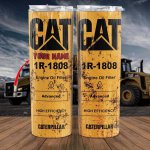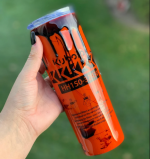Ohio_Pawpaw_Grower
Member
I did purchase the smaller fluted stainless steel coffee filters that every the discussion groups are fawning about. I wasn't interested until I saw what a guy prevented from going into his tank. And then another and another. Then I looked in my diesel cans. Where does this crud come from? There is a huge filter right before the hose where I get fuel.
Anyway, dropped them comfortably into the BX and RTV. I will send along a pic if I pick up any crud. Meanwhile, soon as I empty these cans again, they are getting a good flush. Just did this a couple months ago.
Anyway, dropped them comfortably into the BX and RTV. I will send along a pic if I pick up any crud. Meanwhile, soon as I empty these cans again, they are getting a good flush. Just did this a couple months ago.


